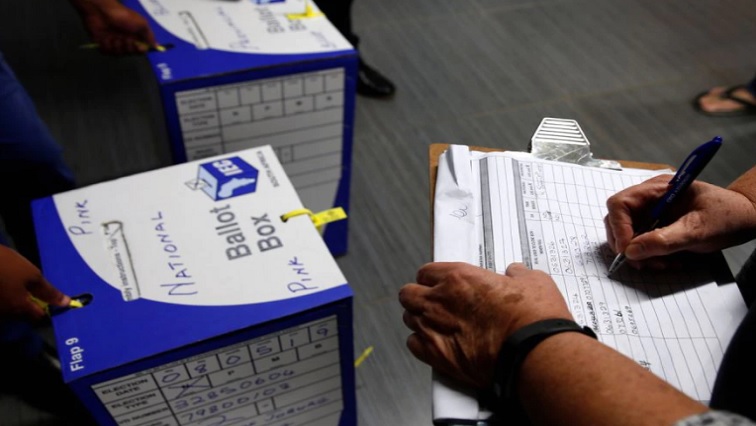The Independent Electoral Commission (IEC) has reflected on its 2019 achievements. The Commission appeared before Parliament’s Home Affairs Committee on Tuesday.
The IEC achieved an unqualified audit opinion from the Auditor General for the 2019/2020 financial year which ended in March 2020.
In his opening remarks, IEC Chairperson, Vuma Mashinini, reflected on some of the achievements of 2019.
“Among those outstanding things is that we had a record number of 26.6 million voters who were actually on the voters roll. And a record number of 78 political parties have contested these elections. Again a record number of special votes were cast which is about 570 000. And we also enjoyed the lowest percent takes of spoilt ballots since 1998 where we recorded 1,27% as opposed to 1.29 (%) in 2014. And also we enjoyed the highest percentage of women elected to the National Assembly, 45.25%, which is a major development of our country.”
Electronic registration
The IEC says it is considering electronic registration as one of the modalities for elections. It says an announcement will be made soon in this regard. The commission also says it does not know what impact COVID-19 will have on the voter turnout in the upcoming local government elections in October.
IEC commissioners and officials appeared before the committee to brief it about its 2019/2020 annual report.
The IEC achieved an unqualified audit opinion from the Auditor General for the 2019/2020 financial year which ended in March last year. In his opening remarks, IEC Chairperson Vuma Mashinini reflected on some of the achievement of 2019.
The briefing comes five months before the upcoming local government elections.
Voter turnout
The IEC says it does not know what impact COVID-19 will have on the voter turnout during the 2021 municipal elections.
IEC Chief Electoral Officer Sy Mamabolo was responding to MPs in the committee. “We are experiencing a decline in national and provincial elections. But that phenomenon is not applicable in local government elections, because of these facts: In 2011 we were able to improve voter turnout from 48 % to 58% and we retained that turnout in 2016. But as I sit here now,- I don’t know what the impact of COVID(-19) is going to have on turnout. If all things were equal,- in other words if there was no COVID(-19), – as a commission, we would have pushed very hard through our programmes, voter education, communication programmes and so on to push that into the 60% arena.”
Mamabolo also responded to questions on the electronic registration system which he says is under consideration. “It is correct that the commission is considering additional modalities of voter registration and we confirm that there will be an electronic registration modality introduced,- supported by safeguards to ensure that the person who actually registered is the person who claims today. So there are safeguards that will be inbuilt into that programme. An announcement in that regard will be made by the commission.”
Mashinini added that the commission has no control over the voter turnout and why eligible voters do not want to participate in elections. “We are very much conscious about the voter challenges. Among the things that we need to highlight there is that as a country we don’t have what we call compulsory voting and participation, where if you don’t participate like in other countries, – you can get a fine. So, that has an impact in voter turnout and participation. The other things we don’t have control over is the issue that there are voters now who have been discouraged by various reasons, from participating in the elections. Now those groupings, we remain very much vigilant to say how then do we continue to pursue them.” Meanwhile, the IEC says it is open to election postponement of the elections:
During the briefing, the EFF called on the IEC to look into the issue of potential fake addresses on the voter’s roll in KwaZulu Natal, especially in EThekwini.
“I raised the fact that in KZN you’ve got to 100 people staying in one address and it’s occurring quite a lot. There is a huge problem there and then you find that people who are not staying in that address or staying somewhere else, they take that address and go and vote. So, they (IEC) need to zoom into those kinds of spaces and inspect their voters’ role especially in KZN, EThekwini. We are seeing it in some other areas where one address is being used for many people,” says EFF Member of the Home Affairs Committee Mgcini Tshwaku.






